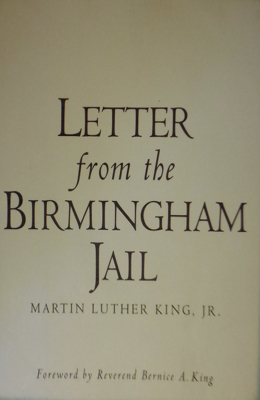End Game
By David Baldacci
David Baldacci weaves an intriguing and action-packed adventure with with enough twists and turns to keep one guessing and thoroughly engrossed. The Blue Man is missing and Will Robie and Jessica Reel (an intriguing relationship if there ever were one) are tasked to find him. Time is running out. The fact they face an array of obstacles and more than one group that would like to see them dead.
Baldacci is great dialogue, descriptive expertise, and characters old (Robie, Reel, and Blue Man) and new. There's "principle" behind his narrative, and as with most novels, insight into the human experience. I have read all the Will Robie series. If Mr. Baldacci pens #6 I will read it as well.
Listens to the Audible version will be treated to the stellar narration of Kyf Brewer and Orlagh Cassidy.
9 Things You Simply Must Do to Succeed in Love and Life
Twelve Years A Slave
By Solomon Northup
"So we passed, hand-cuffed and in silence, through the streets of Washington--through the Capital of a nation, whose theory of government, we are told, rests on the foundation of man's inalienable right to life, LIBERTY, and the pursuit of happiness! Hail! Columbia, happy land, indeed!" Solomon Northup, kidnapped free man at the outset of his twelve years a slave.
Solomon Northup is the reason the term, "required reading" was coined. Twelve Years A Slave is an eye opening, heart wrenching first-hand account of slavery near the Red River in Louisiana. Gripping and detailed, Northup's story is full of victims and villains, along with a kind-hearted few who, raised in milieu of Southern slavery, were ignorant but willing participants and perpetrators of its insensibility and insanity. Northup's account is well written and unvarnished, the stories as raw as the backs of the whipped slaves we meet. As he notes at the conclusion of his dark account, "If I have failed in anything, it has been in presenting to the reader too prominently the bright side of the picture." Readers of The Warmth Of Other Suns (Isabel Wilkerson) will find this a comparable volume for the way it transports the reader to another time and place, albeit an era that preceded the Great Migration about which Wilkerson writes. A "must read" that I wish I read much earlier in life.
Divided By Faith
By Michael O. Emerson and Christian Smith
The writer's purpose is clear: "To learn about American life, this book examines the role of white evangelicalism in black-white relations." The authors contend that whites want to tear down the racial walls, but do more harm than good in their efforts.
This book is a story of how well-intentioned people, their values, and their institutions actually recreate racial divisions and inequalities they ostensibly oppose.
Emerson and Smith set the stage in Chapter 1, "Confronting the Black-White Racial Divide." The challenge is racialization and a racialized society where "we are never unaware of the race of a person with whom we interact." A racialized society dispenses "economic, political, social, and even social rewards to groups along social lines."
Divided by Faith does more than point fingers and lay blame. It constructs a way forward. The book is not a simple read or an easy read. It is well organized, thoroughly researched, and carefully noted.
The Warmth of Other Suns
By Isabel Wilkerson
A masterpiece. Isabel Wilkerson's impeccable research and captivating narrative weaves the migration stories of Ida Mae Gladney, Robert Foster, and George Starling as microcosms of The Great Migration of blacks who fled the South in search of freedom and a better life from 1915 to 1970. As she takes us on their journeys we meet Jim Crow in all his ugliness and feel the Southern caste system that imprisoned generations of African Americans. She brilliantly interlaces story with appropriate doses of hard demographics and sociological theory. What an education! Wilkerson exposed my misunderstanding of the "desegregated North." She increased my appreciation for and gratitude to those who have endured and overcome injustice so that a more just society exists.
Letter From The Birmingham Jail
By Martin Luther King Jr.
Confined to the Birmingham city jail, Dr. King succinctly and carefully answers the criticism of his fellow clergymen regarding the nonviolent protests of the civil rights movement. King writes, "I have looked at the South's beautiful churches with their lofty spires pointing heavenward. I have beheld the impressive outlines of her massive religious education buildings. Over and over I have found myself asking: 'What king of people worship here? Who is there God? Where were their voices . . .?" King's questions for the white church and its leadership are one's for his day and our day too.
Ethical Leadership and Decision Making in Education
By Joan P. Shapiro and Jacqueline A. Stefkovich
Ethical Leadership and Decision Making in Education provides an overview of the ethics of justice, critique, and care. The authors argue for a fourth ethical paradigm, that of professional ethics. Shapiro and Stefkovich provide a framework to help educators develop that "professional ethic" paradigm through the use of a dynamic, multidimensional model.
The author's overview of the ethics of justice, critique, and care is clear, sufficient, and brief. Personally, I would like to see them treat that portion of their book with a little more depth. That said, their overview of the literature and documentation is stellar and their explanations cogent.
Shapiro and Stefkovich do a really outstanding job of highlighting the complexity, i.e. paradoxical nature of ethical decisions. Their case-study approach is helpful and made more so by the number and variety of cases they attach to each of the complex dilemmas an educational leader may face.
It is easy to see why this book is in its fourth edition. A very helpful resource and guide. I echo Martha McCarthy's words: "This book is a must-read for the educational leaders and those who prepare them for their ethically challenging roles."








